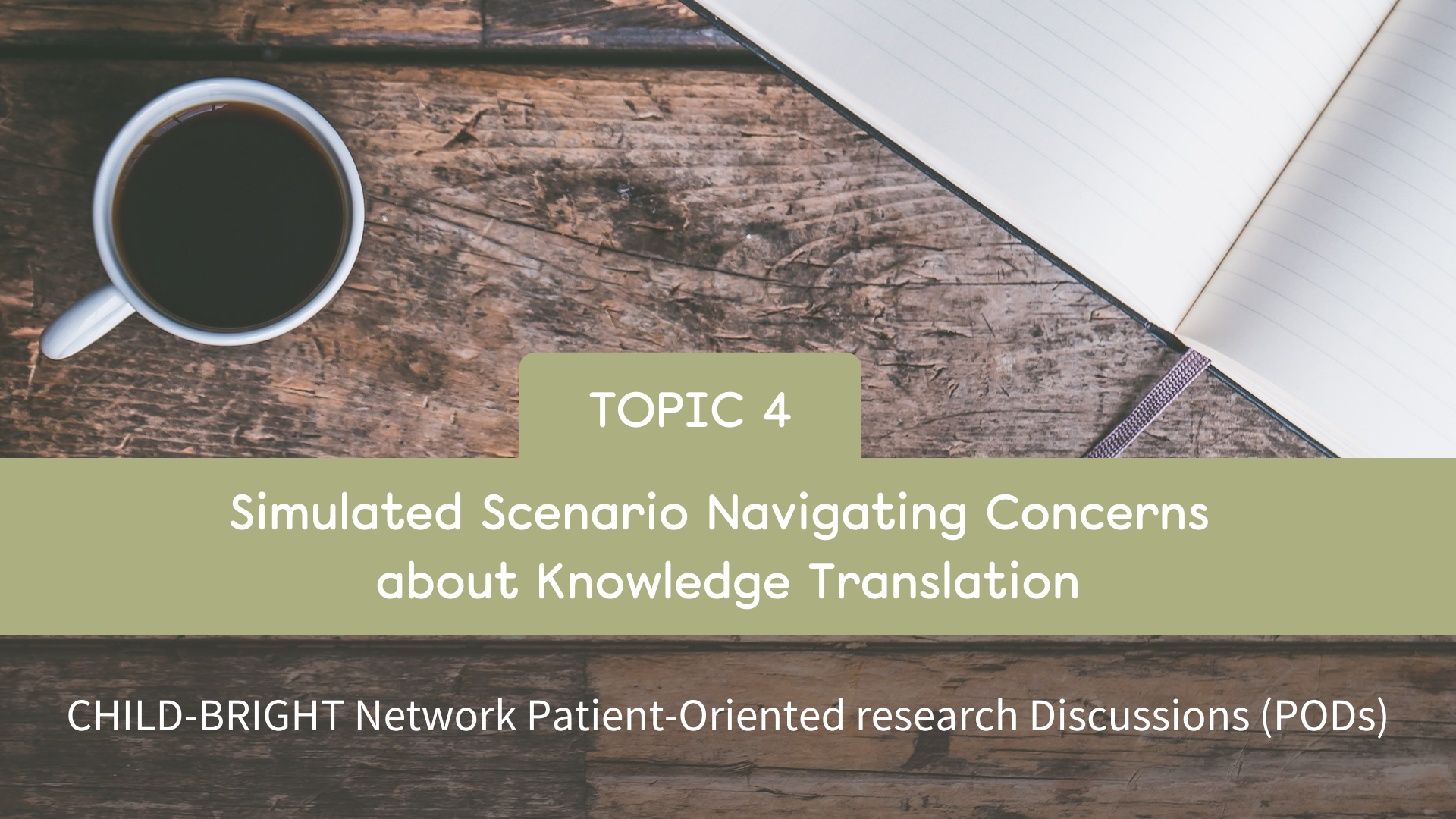This event is now over but if you missed it, please feel to watch the recording below
To enhance the exchange of ideas between all our stakeholders, the CHILD-BRIGHT Network is happy to launch its Patient-Oriented research Discussions (PODs). In each of our four (free!) sessions, we will explore content related to patient engagement in research including interesting projects, resources, pieces of media, podcasts, webinars, research articles, or any other materials related to patient-oriented research. Each session will consist of a 60-minute exploration of the resources and topic identified by the host presenter, followed by an optional 30-minute networking opportunity.
Join us to discuss our fourth topic.
When: Thursday, March 24, 2022
Time: 8:00 - 9:30 a.m. PST / 11:00 a.m. - 12:30 p.m. EST
Research suggests that simulation is a powerful tool that allows learners the opportunity to recreate challenging situations and to learn from these experiences in a safe and controlled setting.
In this session we will use a simulated scenario to explore how expectations may differ between family/youth partners and other members of the research team around how, when and where research findings are shared. This situation was chosen because family partners may be eager to share and implement research findings with their peers and community, while researchers are often required to share findings through publications and formal presentations. As teams co-develop knowledge translation strategies, the method of sharing information, the audience, and the timing should be discussed, acknowledged and agreed upon by all team members.
Session objectives:
Explore how to construct appropriate knowledge translation (dissemination of results) activities and products to ensure the priorities of everyone on the team are adequately addressed, while ensuring the integrity of the research process is upheld.
Develop strategies to successfully navigate co-authorship discussions with family/youth partners.
Reiterate the importance of having key discussions (goal of the study; expectations; limitations) at the beginning of the partnership to reduce confusion and disappointment.


